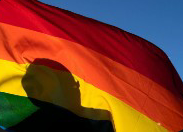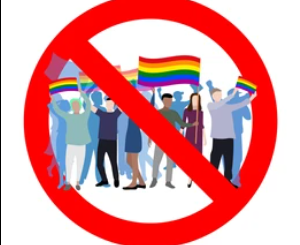
In 2022, numerous gender options were presented for individuals to choose from and identify by in school surveys and program applications.
Throughout the year, dictionaries and government surveys have expanded beyond “female” and “male” gender options to provide selections and definitions of more than 100 gender identities; gender identity is “not visible to others” and can differentiate from the gender an individual is assigned at birth, according to the It Gets Better Project, an international organization focused on supporting the LGBTQ community. Here are 13 of those gender identity terms used throughout 2022.
1.) Genderfuck: Given as an option on San Francisco’s Guaranteed Income For Transgender People (GIFT), a program that gives monthly payments to transgender individuals making less than $600 per month, “genderfuck” is defined as an “expression that is intentionally fluid” and gives “no clear designation in terms of perceived gender,” according to the University of Rhode Island Gender and Sexuality Center.
2.) Demigirl: The Oregon Department of Education administered a 2022 student health survey that allowed 11-year-olds to choose “demigirl” as a gender option. “Demigirl” is for an individual who feels as if they are female but also feels that they lack a gender, according to the Center For Sexuality and Gender Diversity.
3.) Mahu Kane: A gender identity option provided on the Oregon Department of Education 2022 student health survey is only for students who identify as Native Hawaiian Pacific Islander. “Mahu Kane” is used to describe someone who is “in-between” and has both a masculine and feminine spirit, according to Ka Leo O Hawai’i, a student-run publication run by the University of Hawai’i Board of Regents.
4.) Butch: Another option on San Francisco’s GIFT program, “butch” is a masculine-related identity that is “a distinct gender identity and/or expression” but “does not necessarily imply that one also identifies as a woman or not.”
5.) Graygender: Applicants for the GIFT program were also given the choice to identify as “graygender” which refers to an individual who feels that they have a gender, but are “only mildly interested in expressing it,” the Women’s Media Center reported.
6.) Pangender: In 2022 the Oxford Dictionary added 18 gender identity terms including “pangender” which is a person who has multiple gender identities that they switch between “in a fluid manner.” “Pangender” is different from “pansexual,” which is “the emotional and physical attraction to individuals regardless of their gender identity or sexual orientation.”
7.) Brotherboy: An Australian term added to the Oxford Dictionary that refers to a person who was “assigned female at birth” but “identifies with or presents a masculine gender expression.”
8.) Cis: A school board member resigned in 2022 after stating she would not vote a “cis white male” for school board president. “Cis,” is short for “cisgender,” which means “whatever gender you are now is the same as what was presumed for you at birth,” according to the Transhub.
9.) X: As of August, New York residents can now have an “X” gender identity marker on their license, according to the Associated Press. “X” is an indication of a gender identity outside of “M” (male) or “F” (female).
10.) Non-Binary: Parents in an Utah school district were given the option to choose if their elementary-school-aged children identify as transgender or non-binary when registering for school. “Non-binary” is an “an umbrella term” for a gender identity that is “between the spectrum of the male and female binary,” according to Transhub.
11.) Enby: Added to Oxford dictionary in 2022, “enby” is another term for non-binary. The dictionary provided an example of “enby” in a sentence: “I’m enby. I’m not trans.”
12.) Faggot: A term listed on the GIFT program, Merriam-Webster dictionary defines “faggot” as a “gay person, used as a term of abuse and disparagement.” The term, however, is being “reappropriated” by those in the “LGBTQ2S+ community,” according to Freddie, an international team of clinicians and pharmacists focused on healthcare of the LGBTQ community.
13.) Agender: An option for 11-year-olds on the Oregon Department of Education 2022 student health survey that means to be lacking of gender.
“Young people gripped by gender identity mania deny the truth about human beings (e.g., the fact that a person is irrevocably either male or female) and cling to the demonstrably false belief that ‘saying so makes it true,’” Mary Hasson, a fellow at the Ethics and Public Policy Center, which focuses on promoting the Catholic vision while responding to the challenges of gender ideology, told the Daily Caller News Foundation. “But a new ‘gender identity’ label can’t change a person’s body. The truth is that ‘gender’ interventions destroy the body’s healthy functioning in a fruitless attempt to escape the body.”
The Oregon Department of Education, Oxford Dictionary and San Francisco’s GIFT program did not respond to the DCNF’s request for comment.
* Article from: The Daily Caller


